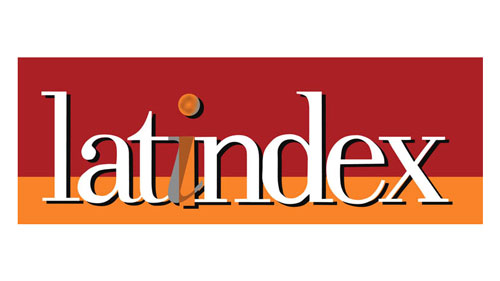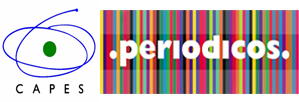Political literacy in coursebooks: for democratic education
DOI:
https://doi.org/10.26512/rhla.v19i1.24888Keywords:
Political literacy, Teaching, TextbookAbstract
The article treats the theme of political literacy in two high school textbook collections, respectively, 2013 and 2016. The objectives are: a) to analyze, comparatively, the proportion which political literacy appears in activities of textual production in two collections of Portuguese Language High School textbooks; b) to verify the proportional amount of textual genres that are proposed to the effective teaching of political literacy; and c) to discuss the data found in both collections. To talk about political literacy, we used Cosson (2008, 2010, 2011) and, to talk about the textbook policy and its contributions to the study of the literacies, Batista (2003) and Rojo (2010). The results showed that the textbooks contribute to reading and writing practices; however, we did not verify in the text production activities of the editions a direction towards the teaching of democracy or themes that were turned to a citizen formation. Therefore, we conclude that the approach about the themes and activities of textual production proposed, in the most part, do not relate to knowledge directly related to the contents about laws, organization of power and its institutions, thus they do not contribute in an effective way to the teaching of the political literacy
Downloads
References
BATISTA, A. A. G. A avaliação dos livros didáticos: para entender o Programa Nacional do Livro Didático (PNLD). In: ROJO, R. H. R.; BATISTA, A. A. G. (Orgs.). Livro didático de Língua Portuguesa, letramento e cultura da escrita. Campinas: Mercado de Letras, 2003. p. 25-68.
BATISTA, A. A. G. Um objeto variável e instável: textos, impressos e livros didáticos. In: ABREU, Márcia (Org.). Leitura, história e história da leitura. Campinas: Mercado de Letras: ALB; São Paulo: Fapesp, 2000.
CAMPS, A.; DOLZ. J. Enseñar a argumentar: un desafio para la escuela actual. Comunicación, Lenguaje y Educación, v. 10, n. 25, p. 5-8, 1995.
CARVALHO, J. S. et al. Formação de professores e educação em direitos humanos e cidadania: dos conceitos à s ações. Educação e Pesquisa, v. 30, n. 3, p. 435-445, set./dez. 2004.
CERTEAU, M. de A invenção do cotidiano 1: artes de fazer. 5. ed. Petrópolis: Vozes, 1994.
COSSON, R. Escolas do legislativo, escola de democracia. Brasília: Câmara dos Deputados, Edições Câmara, 2008.
COSSON, R. Letramento político: por uma pedagogia da democracia. Cadernos Adenauer, v. 11, n. 3, p. 25-36, 2010.
COSSON, R. Letramento político: trilhas abertas em um campo minado. E-Legis Revista Eletrônica do Programa de Pós-Graduação da Câmara dos Deputados, v. 7, n. 7, p. 49-58, 2011.
DEWEY, J. Creative democracy: the task before us. 1939. Disponível em: <https://www.philosophie.uni-muenchen.de/studium/das_fach/warum_phil_ueberhaupt/dewey_creative_democracy.pdf>. Acesso em 15 jun. 2020.
DOLZ, J.; SCHNEUWLY, B. Gêneros orais e escritos na escola. Tradução e organização de Roxane Rojo e Glaís Sales Cordeiro. Campinas: Mercado de Letras, 2004.
FERREIRA MARTINS, I.; DUERR, K.; SPAJIC-VRKAÅ , V. Strategies for learning democratic citizenship. Estrasburgo: DGIV/EDU/CIT, Conselho da Europa, 2000. Disponível em: <http://www.storiairreer.it/sites/default/files/norme/2000%2007%2019%20Duerr.pdf >. Acesso em: 10 jun. 2018.
FONSECA, J. J. S. Metodologia da pesquisa científica. Fortaleza: UEC, 2002.s
HAMILTON, M. Sustainable literacies and the ecology of lifelong learning. In: HARRISON, R. R. F.; HANSON, A.; CLARKE, J. (Org.). Supporting lifelong learning: perspectives on learning. London: Routledge/Open University Press, 2002. v. 1, p. 176-187.
KAHNE, J.; WESTHEIMER, J. Teaching democracy: what schools need to do. Phi Delta Kappan, v. 85, n. 1, p. 34-66, set. 2003.
BRASIL. MINISTÉRIO DA EDUCAÇÃO. Parâmetros curriculares nacionais: Ensino Médio: área de linguagens, códigos e suas tecnologias. Brasília: Secretaria de Educação Média e Tecnológica/MEC, 1999.
RIBEIRO, V. M. Por mais e melhores leitores: uma introdução. In: RIBEIRO, V. M. (Org.). Letramento no Brasil. São Paulo: Ação Educativa/Instituto Paulo Montenegro/Ed. Global, 2003. p. 9-29.
RAMOS, R. A. O livro didático Ser Protagonista de língua portuguesa. 2. ed. São Paulo: Edições SM, 2013.
RAMOS, R. A. O livro didático Ser Protagonista de língua portuguesa. 3. ed. São Paulo: Edições SM, 2016.
ROJO, R. H. R. Letramentos escolares: coletâneas de textos nos livros didáticos de língua portuguesa. Perspectiva, Florianópolis, v. 28, n. 2, p. 433-465, jul./dez. 2010. Disponível em: <https://periodicos.ufsc.br/index.php/perspectiva/article/view/2175-795X.2010v28n2p433/18444.> Acesso em: 10 jun. 2018.
STREET, B. V. What’s “new” in new literacy studies? critical approaches to literacy in theory and practice. Current Issues in Comparative Education, v. 5, n. 2, p. 77-91, 2003.
CIRCLE (Center for Information and Research on Civic Learning and Engagement). The civic mission of schools: a report from Carnegie Corporation of New York and CIRCLE: The Center for Information and Research on Civic Learning and Engagement. 2003. Disponível em: <https://media.carnegie.org/filer_public/9d/0a/9d0af9f4-06af-4cc6-ae7d-71a2ae2b93d7/ccny_report_2003_civicmission.pdf>. Acesso em: 23 jun. 2020.
Downloads
Published
How to Cite
Issue
Section
License
Copyright (c) 2020 Revista Horizontes de Linguistica Aplicada

This work is licensed under a Creative Commons Attribution-NonCommercial-NoDerivatives 4.0 International License.

A Revista Horizontes de Linguística Aplicada de http://seer.bce.unb.br/index.php/horizontesla/index é licenciado sob uma Licença Creative Commons Atribuição-Uso não-comercial-Vedada a criação de obras derivadas 3.0 Unported.
- Autores mantém os direitos autorais e concedem à revista o direito de primeira publicação, sendo o trabalho simultaneamente licenciado sob a Creative Commons Attribution License o que permite o compartilhamento do trabalho com reconhecimento da autoria do trabalho e publicação inicial nesta revista.
- Autores têm autorização para assumir contratos adicionais separadamente, para distribuição não-exclusiva da versão do trabalho publicada nesta revista (ex.: publicar em repositório institucional ou como capítulo de livro), com reconhecimento de autoria e publicação inicial nesta revista.




